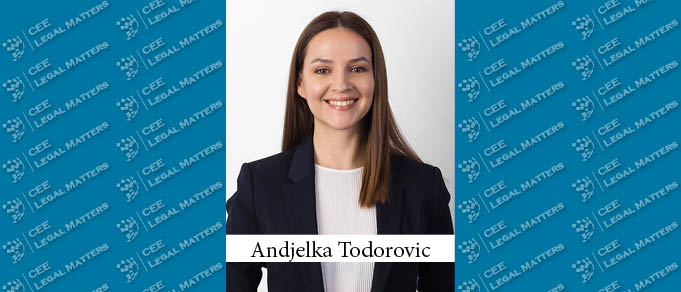Preparedness and adaptability are the Serbian keys to doing business in a changing and challenging environment, according to Partner Andjelka Todorovic of Law Office Miroslav Stojanovic, in cooperation with Wolf Theiss.
"The overall feel in the Serbian market is that we have a certain level of preparedness in case of disruption," Todorovic begins. "Globally, we are still on the back end of the COVID-19 pandemic, the world is affected by the conflict in Ukraine and, with the evolving energy crisis, these are not very promising circumstances. Our local market is therefore having to constantly adapt, but Serbs are good at doing business in a changing environment – you can even call it a cultural trait."
According to Todorovic, one of the things the country has to deal with is that, many months after a parliamentary election, there is still formally no government. She explains: "We do not expect a change in government, but we are in limbo politically. A lot of legislative action which will affect project development and investment is waiting for the appointment of new ministers."
"Still, a positive example of moving forward, even with a delay, comes from the Ministry of Mining and Energy," Todorovic points out. "We now have almost a complete set of renewable energy legislation that introduces auctions for premiums and makes way for prosumers." The timing of the first auction is in the air at the moment, she notes, "but developers are ready for the 400-megawatt wind power projects that have been approved for a new round of incentivized investment in renewables. I am pleased to see regulation on biomass kicking into gear and being implemented at a utility-scale, as this is a resource with a lot of untapped potential in Serbia."
Where Todorovic would like to see more movement, however, is on telecoms. "We have been waiting for the new law for ages," she reports. "The drafts that are in development are quickly outdated and have to be revised again before they even go into the procedure." The average income in Serbia has gradually increased over the years, she says, and "we have become a market for smart homes and connected cars. Both the regulator and we, as lawyers, apply European best practices – and have even created our own – because our current laws do not correspond to the needs of these new technologies."
Speaking about the reliance on European standards, Todorovic says a key area of interest in Serbia is ESG. According to her, "you will not get financing unless your business meets EU thresholds, which is a complex task." There are no regulations in Serbia dealing with ESG as it is known at the European level, she says. "However, as with everything, we made a playbook of our own out of the environmental and social regulations that we do have."
Finally, Todorovic gives a personal view of a shift she sees in client work. "Over the years, Serbia was known for privatizations and public-to-private transactions that were the highest value transactions in the market, but that era is ending," she says. "There will always be public infrastructure projects and there are still a few stubborn public companies in need of a professional investor. However, the value and overall percentage of private-to-private transactions we work on is ever increasing."
"It is not news that Serbia has become fertile ground for companies in innovative sectors, communications, and software development. I expect to see some very interesting M&A deals for private hospitals and in the pharmaceuticals sector, in agriculture and food production, and, of course, the automotive industry," Todorovic concludes.















